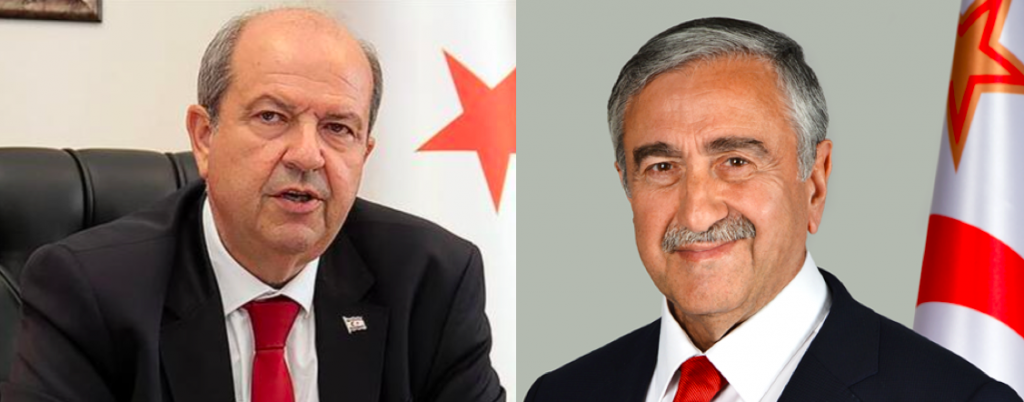The Prime Minister of the Turkish Republic of Northern Cyprus (TRNC) has accused its President, Mustafa Akıncı, of electioneering after his decision to agree to a meeting with Greek Cypriot leader Nicos Anastasiades and United Nations Secretary-General Antonio Guterres in Berlin in November.
Ersin Tatar said that Mr Akıncı, whose current five-year term ends next April, was acting “with the forthcoming [presidential] elections in mind”, although Mr Akıncı has yet to declare his candidacy.
The PM issued a statement on Saturday after Mr Akıncı’s spokesman Barış Burcu announced on Friday that the President had agreed to the “tripartite” gathering in the German capital on 25 November, as part of a renewed bid to launch formal negotiations to solve the “Cyprus problem”. There have been no official discussions since July 2017, when a make-or-break summit in the Swiss resort of Crans-Montana ended in failure.
Last year, following a “period of reflection”, Mr Guterres appointed “temporary” consultant Jane Holl Lute to coax the two sides into agreeing on the “terms of reference” for new peace talks to begin, something that she has yet to achieve.
Ms Lute is expected to pay another visit to the island in November, ahead of the Berlin date, reports said.
“We believe that Akıncı is making some moves with the forthcoming elections in mind but whatever he does, the people do not trust him anymore,” Mr Tatar, leader of the National Unity Party (UBP), said.
He repeated the UBP assembly’s call – first made on 14 October after Mr Akıncı sparked controversy with comments on Turkey’s military operation in north-eastern Syria – that Mr Akıncı should not engage in any further negotiations with the Greek Cypriot side because he “no longer represented the political will of the Turkish Cypriot people”.
TRNC President Akıncı with UN Secretary-General Antonio Guterres in New York in Sept. 2019
Opposition to Akıncı by the “political parties which hold the majority of seats in the [TRNC] Parliament and [by] Ankara” meant it would be “wrong” for him to “sit at the table with the Greek Cypriot leader to discuss vital issues regarding sovereignty, security, territory, citizenship, guarantees, governance and power-sharing”, Mr Tatar asserted.
The PM said there has been “no change in the positions of the Greek Cypriot side since the Conference on Cyprus held in Crans-Montana 28 months ago”.
Criticism of Mr Akıncı’s decision to travel to Berlin also came from Deputy Prime Minister and Minister of Foreign Affairs Kudret Özersay, who warned of the Cyprus issue remaining caught in a “vicious cycle” of negotiations.
Dr Özersay, leader of the People’s Party, said in a lengthy Facebook post on Monday that there was “nothing new or exciting” about the meeting in Germany and that the two sides of Cyprus lacked a “joint vision”.
“The [UN] Secretary-General saw that this is the case and that is why he has stood back and not become re-engaged in the process since 2017,” he wrote.
“It is because of the lack of a joint vision that the terms of reference document could not be created. A federal partnership requires the sharing of both the administration and wealth [of the island] but the Greek Cypriot side is not yet ready or willing to share.”
Dr Özersay said that it was evident that there had been “no change” in the “mentality” of the Greek Cypriot leadership.
“If we continue to turn a blind eye to the main reason negotiations on the Cyprus issue have failed for the past 51 years, then the tripartite meeting in November will not be much different from any of the others.
“I only hope I am mistaken in my analysis that supports an end to the vicious circle in Cyprus.”
Main opposition Republican Turkish Party (CTP) leader Tufan Erhürman, also writing on Facebook, said that the tripartite meeting due to take place in Berlin was “extremely important”.
He called on Mr Guterres to “commit to the fundamental aspects” made in his previous statements and those made by the UN Security Council with regards to political equality for the Turkish Cypriots in any unified Cyprus, including the chance for a Turkish Cypriot to become the leader of the whole island under a “rotating presidency”.
“If that becomes clear, and a negotiation method that is results-oriented and not open-ended is adopted, then an important step will have been taken to carry us forward on the path to a comprehensive solution,” Dr Erhürman said. “Our biggest wish is for this step to be taken in Berlin.”





